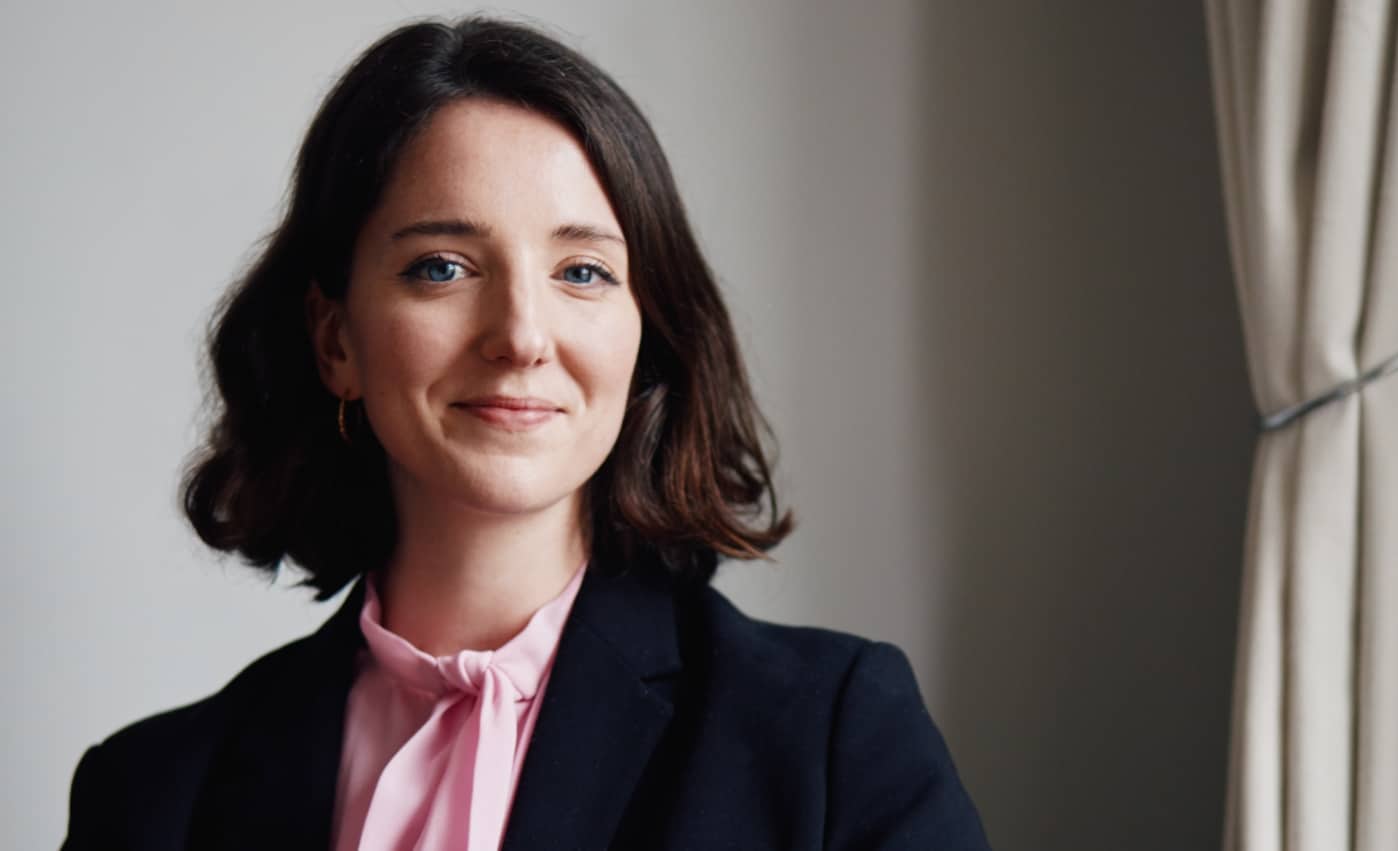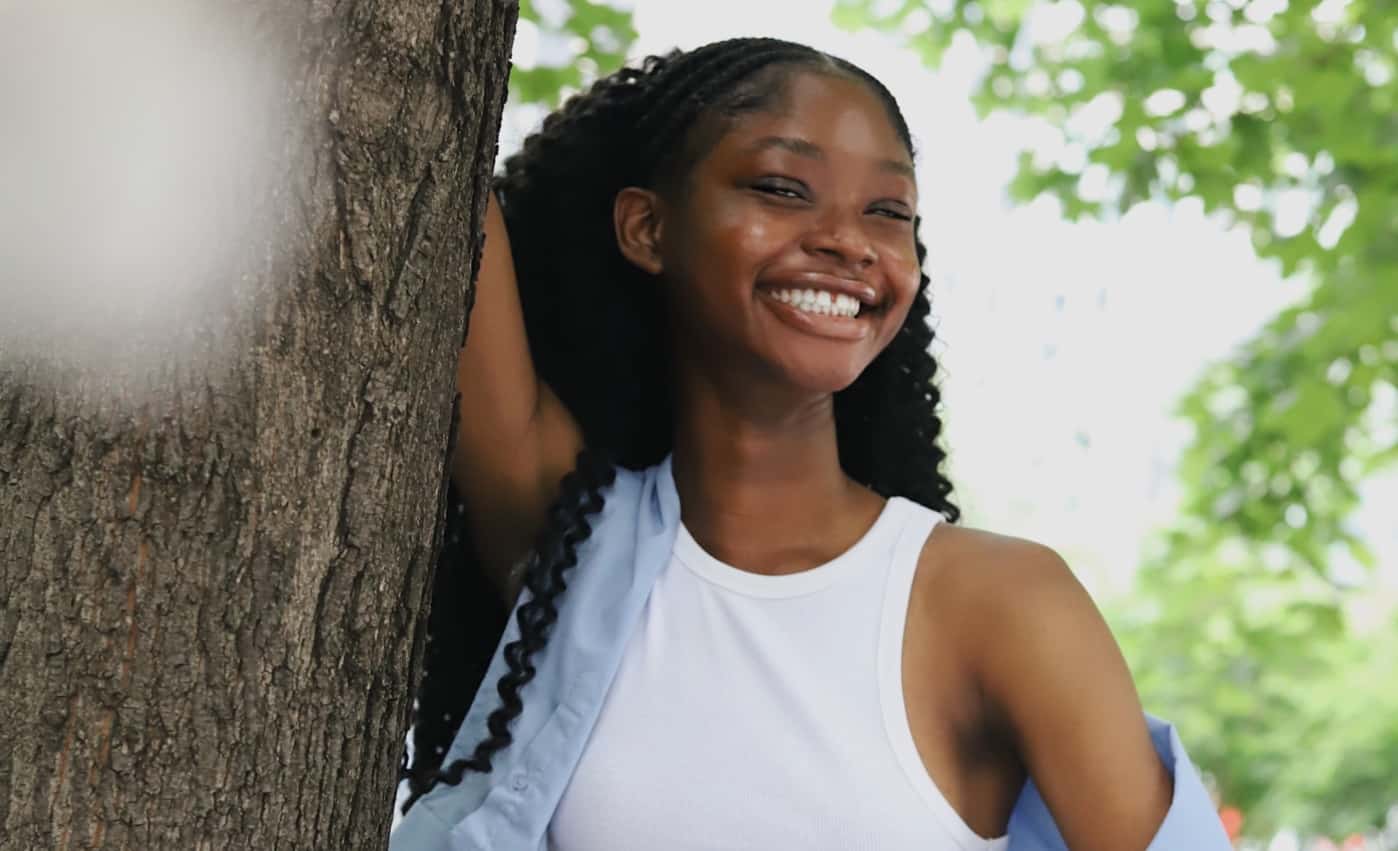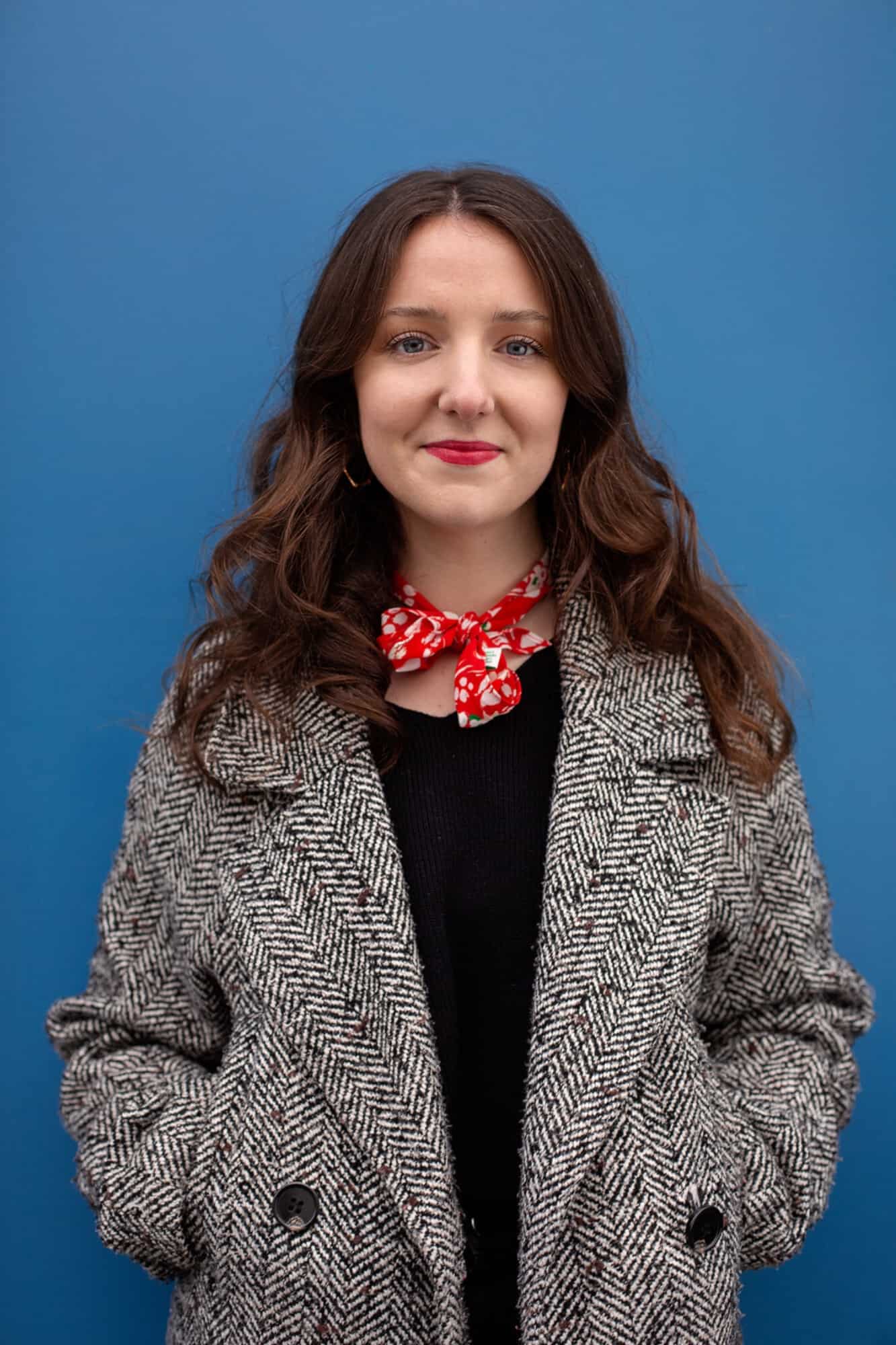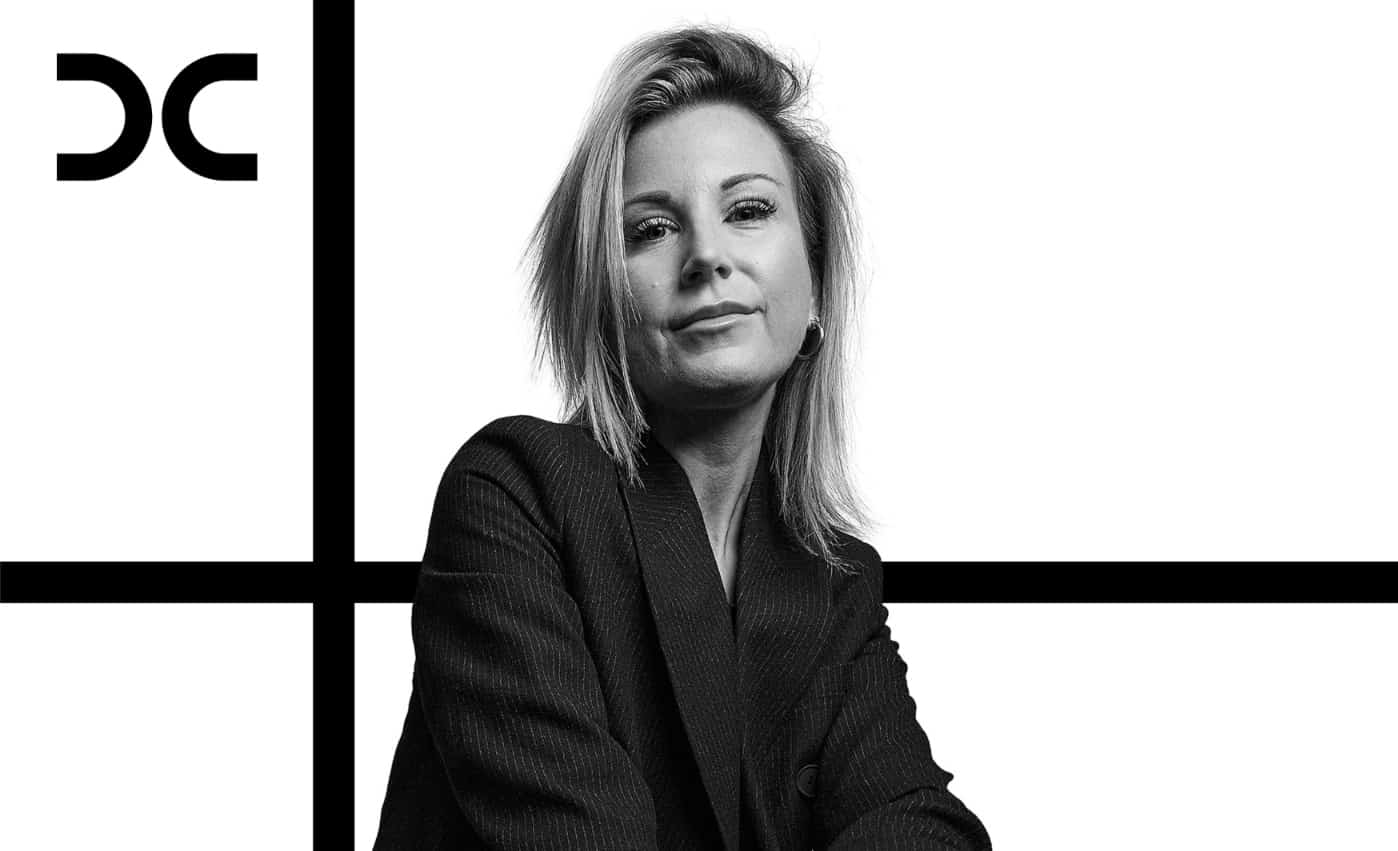Bronagh Monahan is a disruptor. She describes herself as a lone ranger, but at heart she’s a connector, a communicator and a creator. And she is doing something really interesting in the influencer space: creating opportunities for her clients that have aspirations far beyond the traditional ideas associated with influencer marketing. Monahan is creating ecosystems – hell, entire worlds – for her clients and their audiences, multi-faceted careers and projects that have roots and legacy. It sounds like noisy work, but it’s all delivered with a quiet authority that confirms her talent agency MonRae Management as a culture-defining enterprise.
Monahan is celebrating two years of MonRae, launched in April 2021 with her business partner Elspeth Rae. And there’s a lot to celebrate. Their client roster includes: Dan Middleton, AKA DanTDM, one of the most loved and successful gamers with 26.8 million YouTube subscribers; Tom Simons AKA TommyInnit, who is one of the most popular YouTubers and Twitch streamers on the planet, with more than 50 million subscribers across his channels, who last year sold out the Brighton Dome in fewer than 24 hours for his debut stage show TommyInnit & Friends and is about to embark on a 12-theatre tour at just 19-years-old; female gamer Yammy who has driven a game-changing path through the industry and has recently signed deals with heritage brands such as Burberry and Coca-Cola, as well as being a Toca World ambassador; and Jenny Mustard, a lifestyle vlogger and writer whose debut novel Okay Days is out in June and is already being developed for the small screen. The work is diverse, it’s meaningful, and it glides seemingly effortlessly across all the digital spheres.
So how did it all begin? Monahan cut her teeth at Gleam, and before that, she was a singer-songwriter, and it’s no coincidence that Rae was a child actress. Monahan says: “Elspeth and I come from a background as artists, we’re performers, we care about art, making people feel something, we’re sort of storytellers in that way.” That creator sensibility means they understand the roles their talent wants to play and what it means to them and their audiences. That this is not about mere transaction informs everything the pair do. Anyway, back to Gleam… there she managed the likes of Caspar Lee, Victoria Magrath and Niomi Smart, “all this amazing YouTube talent”. She says Gleam was an exciting place to be because it was the leader in digital first talent management, but Monahan loves a start-up environment more. She is, she says “self-motivated”, “a sponge”, “a lone ranger”. Maybe it was about autonomy, but whatever the reason she felt there was something for her beyond the Gleam model. She went to work with BBC Studios, which had just set up a label called TalentWorks and was developing IP with digital-first talent, and something fell into place. “I was really interested in the idea that you could work with a YouTuber to come up with a concept that could live outside of YouTube,” she says. She began by identifying talent for development schemes: “The first,” she says, “was a partnership with the BBC writer’s rooms, finding comedic talent and placing them with comedy writers.” There she worked with Amelia Dimoldenberg, Lucia Keskin, Adrian Bliss, and Megan Crabbe. “I think I’ve always had an eye for people like that,” she says. “Obviously they live on digital, but they are entertainers and they just cut through the noise. And we were partnering them with writers to try and move them on in their entertainment career.”
You may also like
It is this editorial-first approach that makes MonRae so quietly disruptive. The influencer marketing trajectory has been about aggressive commercialisation translating to relevance in the mainstream. Not for Monahan, who is all about nuance. She says: “I have always been very conscious that you need to focus on that editorial organic stuff first and commercial comes second. That’s how it’s always worked in entertainment.” She adds: “I’ve noticed with some creators their feeds are becoming dictated by advertising and brands and that’s where they lose a sense of who they are.”
It was while working at BBC Studios that she met Rae, who was managing Dan TDM and had worked at Endemol. The pair connected because Dan had done a record-breaking sell-out tour and the BBC wanted the rights to the second. Says Monahan: “I think sometimes you just find someone and you click.” When Rae became pregnant, she took Monahan to breakfast and asked her to manage DanTDM while she was on maternity leave. Monahan jumped at the chance and everything clicked again: “I just thought of me and Elspeth as a kind of joint venture. There’s something really exciting here. Having worked at Gleam, having worked at BBC Studios, Elspeth having been at Endemol, having managed one of the biggest talents out there and bringing gaming into the fold. It felt like the right moment to pitch an idea for a new management company.” MonRae was born in April 2021.
The premise of the business, says Monahan, “was to find exciting voices in digital and nurture them, protect their futures and help them develop IP. And then within the first year, we got approached by Sky Kids to make a TV show with Dan, and MonRae Productions came out of that.”
Monahan feels a strong sense of responsibility for both her talent and their audiences. For the talent it concerns her that the world is constantly changing and they are required to endlessly evolve, beyond the work they are doing. She also is attuned to the fact that the internet can be a scary place, and she feels that she needs to “represent people who are role models, or pioneers in what they’re doing”. MonRae talent are not pressured to jump on trends or endlessly repackage themselves. “We represent people who shut out the noise,” she says. She is so aware of the influence the likes of TommyInnit and Yammy yield over their young audiences and says: “Some people can use that to their advantage in a way that personally I’m not sure is the right thing to do. We try not to have them market product constantly. I think that’s why we prefer IP over products because people just want to be entertained.”
Things have to matter. She cites finance expert Bola Sol as an example: “Bola speaks directly to women who want to get hold of their finances and ask for pay rises. Those sorts of decisions are life-changing for people.” Monahan says it’s about being more considered about the influence that these people have, and “how we find people that are going to make a positive difference”.
Choosing IP over influence is why the MonRae team have become disruptors. CORQ founder Sara McCorquodale described them in Grazia as “quiet powerhouses in the world of digital talent…women setting the culture”. Monahan is interested in how COVID changed the landscape for her in terms of being a female founder – her business percolated in lockdown but like many it made her assess “what actually matters and what you can achieve”. Gleam training also gets a nod: “So many of the women that I met when I was at Gleam have now gone to set up like their own companies, and they’re all doing really well.” This includes Jessica Joseph at Season25. Independence has meant she and Rae can set their own boundaries around family and work and ethos and pass the stress baton between themselves. These boundaries mean the work translates into more meaningful collaborations that have deep roots. We talk about a project with Sol: her book How To Save It was published by #Merky Books, another boutique business with big goals. Sol’s book was a mini tool kit in how to understand finances and she had always dreamed of going into schools to do workshops for kids about money. MonRae and #Merky pitched to HSBC and made it happen to Monahan’s delight. “When that first got announced there was a picture of Bola next to Stormzy in Metro Money. I was just like, ‘these are the sorts of partnerships that as a manager you dream of’. You want to work with brands, obviously, it’s important for your talent to be able to fund what they’re doing, but to be able to fund something that’s come from a project on their own terms, that just brings it all together.”
We discuss the success of someone like Amelia Dimoldenberg as a benchmark for young creators. “She’s a good example of someone who was not an overnight success. She has been working on that for years. We try to empower our talent to have their own thing. You need to have this consistent thing, this ‘format’ that you commit to. You’ve got to be entrepreneurial and you’ve got to invest in yourself.” She also tries to empower her talent when it comes to brand messages. “I always say to the talent ‘don’t shy away from picking apart the brief. Brands have given you a brief because that’s their job. But, also, it’s going on your channels, so it has to be in your tone of voice’.”
The two-year mark means Monahan is characteristically reflective about how the business has evolved and how she likes to work. “We’re two years in and I feel like the projects that we’re now putting out represent what we believe,” she says. “What makes us different is that as managers we work on all the commercial aspects of a talent’s career, but we also use our production heads and properly build new formats. We’re not trying to take on Hollywood. We’re not trying to take on the TV industry. We’re saying ‘here’s the talent. They have a huge audience’.”
In her brilliant, low-key way, the quiet powerhouse adds: “We figure out what we want to put out into the world and then we just do it.”
By Emilie McMeekan, CORQ features director. Picture credit: Bronagh Monahan










